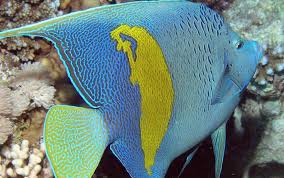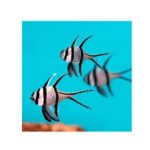
The dragon is one of the most iconic symbols in Chinese culture, intertwined with the country’s mythology, history, and epics. Dragons are not only mystical creatures but also powerful symbols of imperial authority, fortune, and cosmic balance. Throughout Chinese mythology and the country’s rich literary traditions, dragons are deeply ingrained in legendary stories, influencing the lives of numerous mythical and historical characters.
This article explores the legendary connections between dragons and characters in China’s famous epics, such as the Classic of Mountains and Seas (Shan Hai Jing), Journey to the West (Xi You Ji), The Water Margin (Shui Hu Zhuan), and Romance of the Three Kingdoms (San Guo Yan Yi). Through these ancient texts and myths, dragons are portrayed as divine protectors, guides, or powerful forces of nature that shape the fate of heroes and civilizations.
The Role of Dragons in Chinese Mythology
In Chinese mythology, the dragon is a multifaceted creature. It is often described as a benevolent being with immense power, capable of controlling the weather, rivers, and oceans. Unlike the fearsome dragons found in Western cultures, Chinese dragons are usually depicted as benevolent and noble, associated with good fortune, prosperity, and the emperor’s divine authority. Dragons symbolize the emperor’s control over the universe and the natural elements, as well as the emperor’s mandate from heaven to rule.
In the context of ancient epics and myths, dragons are often portrayed as divine creatures with an essential role in the creation and destruction of the world. These creatures are believed to have shaped the natural world through their control of water, winds, and clouds, bringing about order and harmony to the land. The connection between dragons and nature is evident in the myth of Pan Gu, where a giant dragon helped in the creation of the universe, laying the foundation for the physical world.
The Legend of the Yellow Emperor and the Dragon
One of the earliest and most famous examples of the dragon’s symbolic importance in Chinese history is the story of the Yellow Emperor (Huang Di), one of China’s legendary ancestors. According to myth, the Yellow Emperor was a wise and powerful leader who was said to have been protected and guided by a dragon during his reign.
The Yellow Emperor’s dragon, which was both a symbol of his imperial power and an agent of divine protection, is often depicted in the Classic of Mountains and Seas. This creature is said to have helped him win battles, overcome enemies, and solidify his position as one of the founding rulers of Chinese civilization. The dragon’s association with the Yellow Emperor symbolizes the emperor’s connection to the heavens, representing the divine right to rule and maintain order in the empire.
The Dragon King of the East Sea in Chinese Epics
Another famous dragon from Chinese mythology is the Dragon King of the East Sea, who is central to many legends and epics. The Dragon King rules over the vast oceans, commanding the seas and controlling the weather. He is often depicted as a benevolent ruler who assists those in need but can also be vengeful when provoked.
One of the most well-known stories involving the Dragon King of the East Sea is found in Journey to the West, where the hero Sun Wukong (the Monkey King) encounters the Dragon King during his quest to obtain the sacred scriptures. In this story, the Dragon King is shown to have immense power over the elements, able to summon storms and command vast armies of water creatures. However, despite his great power, he is ultimately outwitted by Sun Wukong, who proves that intellect and determination can triumph over raw strength.
In this context, the Dragon King represents both the might of nature and the challenges that heroes must overcome to achieve their goals. His role in Journey to the West reflects the broader theme of dragons in Chinese mythology as symbols of both great power and wisdom, whose assistance or opposition can significantly impact the fates of the characters.
Dragons and Legendary Heroes in The Water Margin
In The Water Margin (Shui Hu Zhuan), one of China’s four great classical novels, dragons take on a more symbolic role, representing the spirit of rebellion and resistance against corruption. The Water Margin tells the story of 108 outlaws who rise up against an unjust government. While dragons do not appear as characters in the story, the imagery of dragons is often invoked to represent the strength and courage of the heroes, who are likened to the powerful creatures that defy oppressive forces.
In particular, Song Jiang, one of the main protagonists in the story, is frequently associated with dragon-like qualities. Known as “the Black Whirlwind,” Song Jiang is a leader with extraordinary courage and resilience. His character is often depicted in connection with the dragon as a symbol of his unyielding strength and ability to fight against tyranny.
The connection between dragons and these legendary heroes reflects the cultural belief in the importance of power, resilience, and honor in Chinese society. In The Water Margin, dragons are symbolic of the heroes’ defiance of injustice and their fight for righteousness in a corrupt world.
Dragons in Romance of the Three Kingdoms
In the epic Romance of the Three Kingdoms (San Guo Yan Yi), the dragon appears symbolically, often in reference to the warrior Zhuge Liang (also known as Kongming), one of the most intelligent strategists and military leaders in Chinese history. While dragons do not play a physical role in the story, Zhuge Liang is often associated with dragon-like qualities such as wisdom, strategic brilliance, and unmatched power.
One of the most famous instances of dragon imagery in Romance of the Three Kingdoms comes during the battle of Red Cliffs, where Zhuge Liang is said to have used the “wind-drawing technique,” which supposedly summoned a dragon to help turn the tides of battle. The belief that Zhuge Liang could command the power of dragons further emphasizes the connection between dragons and strategic intelligence in Chinese warfare.
This association is rooted in the broader Chinese cultural belief that dragons, as supreme beings capable of manipulating natural forces, represent the ideal qualities of a wise and capable leader. For many, the image of the dragon embodies the perfect balance of power, wisdom, and ambition that is necessary to succeed in both warfare and politics.
The Dragon and the Jade Emperor in Chinese Mythology
In addition to dragons being associated with legendary heroes, they are also deeply connected with the divine and heavenly realms. One of the most important mythological figures in Chinese lore is the Jade Emperor, the supreme ruler of Heaven. The Jade Emperor is often depicted as sitting on a throne surrounded by dragons, who serve as his emissaries and enforcers of cosmic law.
In Chinese mythology, the Jade Emperor’s dragons are tasked with maintaining the balance between Heaven and Earth, ensuring that the natural world functions smoothly. These dragons are believed to possess supernatural abilities, such as the power to control the weather and bring prosperity. The Jade Emperor’s association with the dragon further emphasizes the divine and celestial nature of these creatures, reinforcing their connection to power and protection in Chinese culture.
The Jade Emperor’s dragons often appear in popular stories, especially during the Chinese New Year, when they are believed to bring good fortune and prosperity to those who honor them. The legendary figure of the Jade Emperor and his dragon entourage highlights the continuing belief in the supernatural power of dragons in Chinese religious and spiritual practices.
Dragons in Chinese Festivals and Celebrations
The dragon’s presence in Chinese epics and folklore has extended beyond the realms of mythology into everyday culture, particularly through festivals and celebrations. The Dragon Boat Festival (Duanwu Festival) is one of the most important celebrations in China, held annually to honor the dragon and its symbolic role in Chinese culture.
During this festival, people race dragon-shaped boats in rivers and lakes, reenacting ancient myths in which dragons helped protect the Chinese people from floods and natural disasters. The dragon boats, often ornately decorated with dragon heads and tails, symbolize the protection and good fortune that dragons bring to the community.
Conclusion: The Enduring Symbolism of Dragons in Chinese Epics
Dragons hold a unique and important place in Chinese epics and mythology, symbolizing both the divine power of the emperor and the cosmic balance of nature. From the Yellow Emperor to the Dragon King of the East Sea and legendary figures like Zhuge Liang, dragons continue to embody strength, wisdom, and divine protection in Chinese literature and folklore.
Their influence stretches beyond mythology, shaping the culture, festivals, and spiritual practices of the Chinese people. The dragon, as both a mythological creature and a cultural symbol, continues to play an integral role in Chinese epics, reflecting the country’s deep connection to these powerful, enigmatic creatures that have inspired generations of heroes, leaders, and warriors.
As China continues to evolve, the legacy of the dragon remains strong, inspiring new generations to embody the qualities of power, courage, and wisdom that the dragon has always represented in Chinese history and culture. The stories of these legendary characters and their connection to the dragon will continue to be told for generations, preserving the dragon’s place as one of the most important symbols in Chinese civilization.









